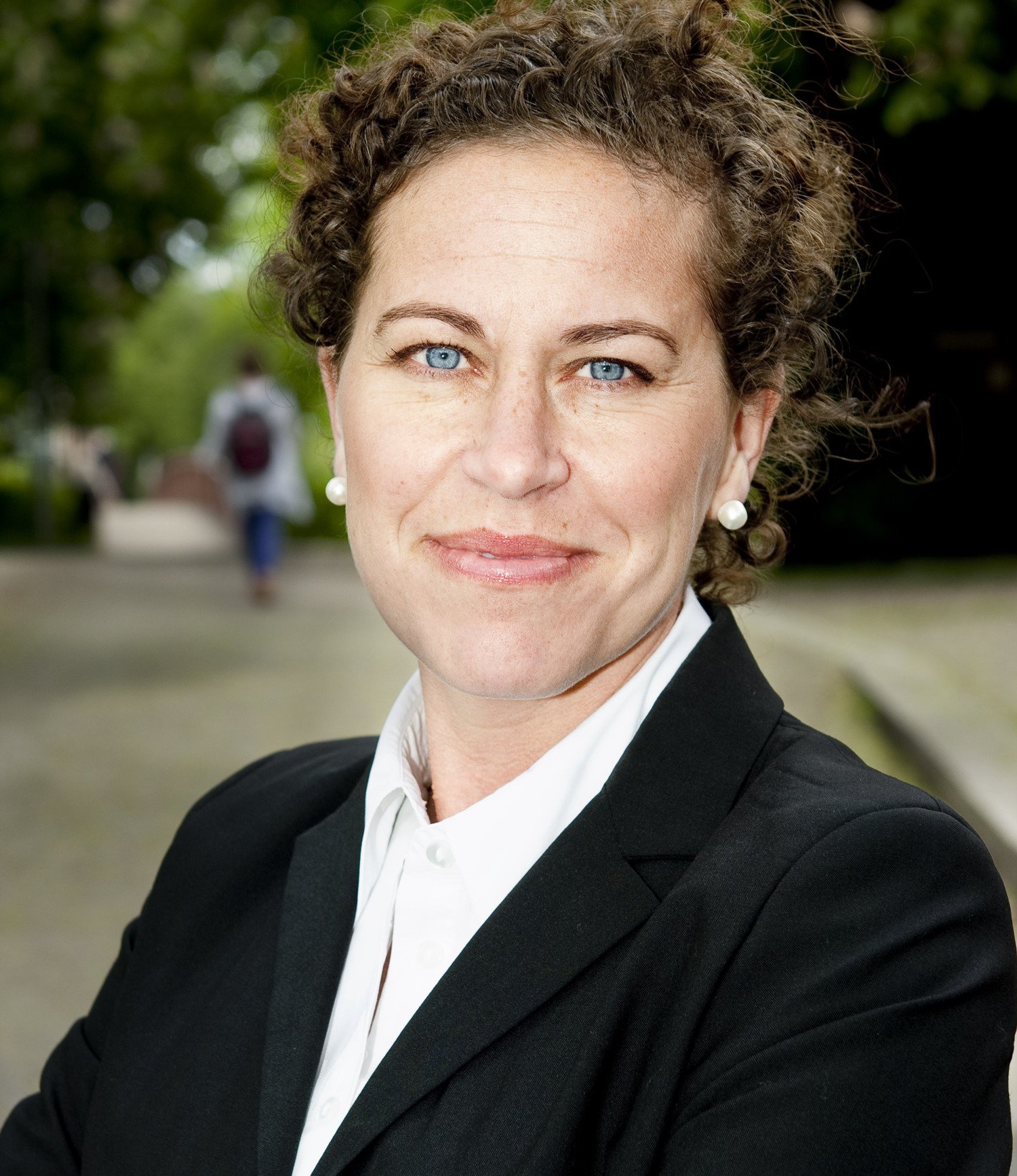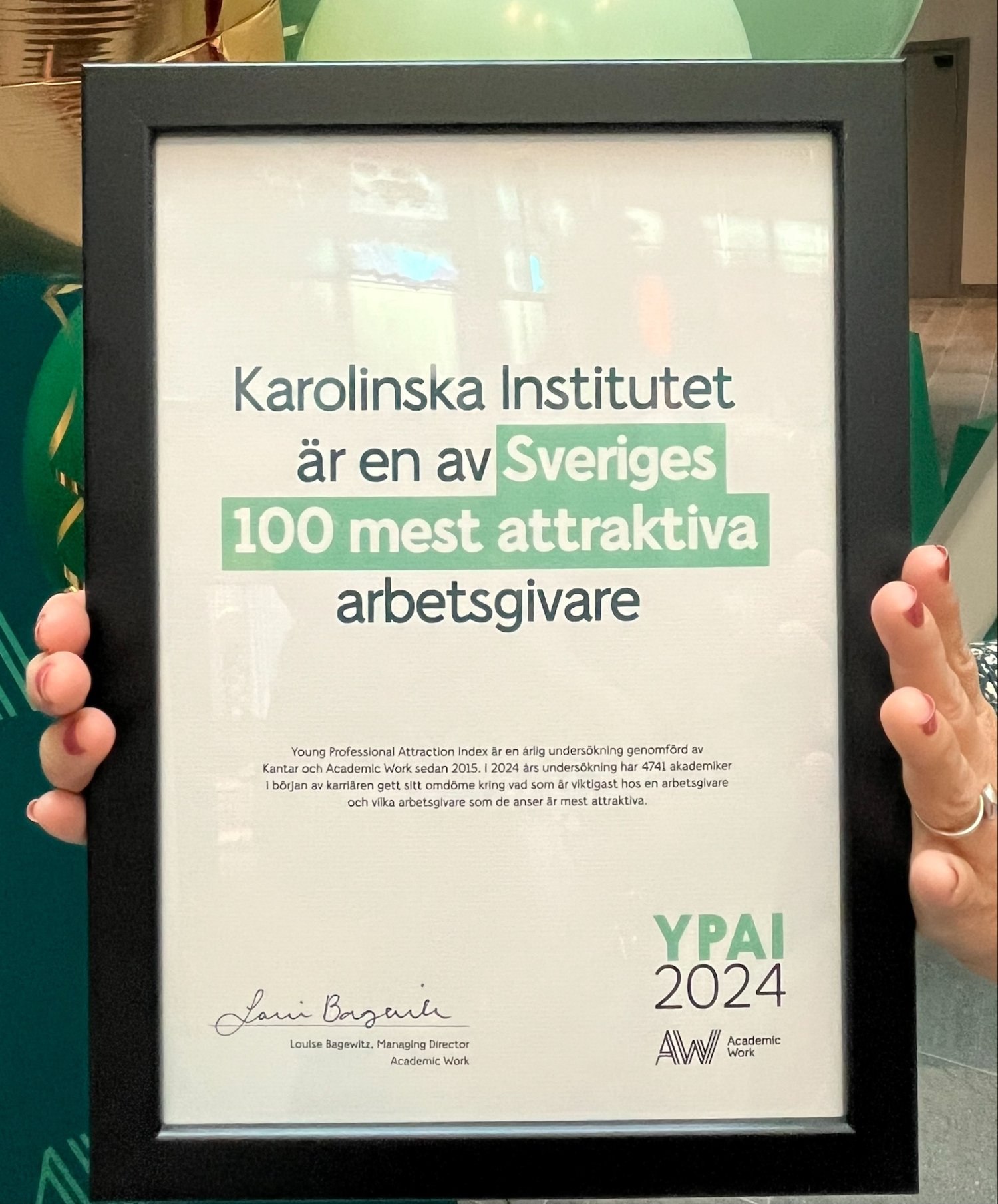For the third year in a row, Karolinska Institutet has been placed on the list of Sweden's 100 most attractive employers according to students and young academics. This is in fierce competition with, among others, Ikea, Google, Spotify and Astra Zeneca. This is shown by the annual Young Professional Attraction Index.
The recruitment company Academic Works conducts the Young Professional Attraction Index (YPAI) survey every year in collaboration with Kantar.
In this year's survey, more than 4,700 students and academics at the beginning of their careers answered the question of which employer they would most like to work for. KI is in place 42 on the important top list.

"The fact that Karolinska Institutet is ranked high on the list of Sweden's most attractive employers for the third year in a row is a stamp of quality for the entire organisation. The most important thing is, of course, that our staff and students succeed in creating a welcoming and creative work and study environment. This ranking is a confirmation of that," says KI President Annika Östman Wernerson.
When KI was included on the list of the country's most attractive employers three years ago, it was the first university to be placed there.
This year, KI will be joined by Lund and Stockholm Universities.

"I am proud of our position as an attractive employer and not least proud of our fantastic employees. KI is a dynamic workplace, where researchers, teachers and support services work together to contribute to better health for all," says Johanna Bäckström, head of the HR Office at Professional Services.
Good colleagues are important
The participants in the survey have been asked to rate the ten most important qualities of a good employer.

According to tomorrow's employees, the most important thing is that a good employer offers good colleagues and a good work environment, flexibility and work-life balance, as well as career and development opportunities.
The purpose of the survey is to help companies and organizations understand, attract and develop tomorrow's employees. The survey has been conducted for ten years in a row.






